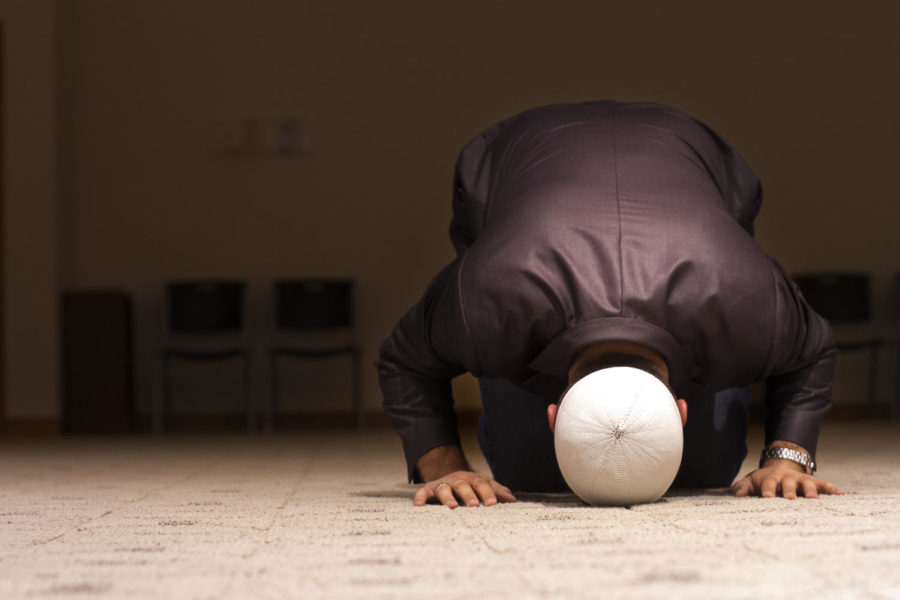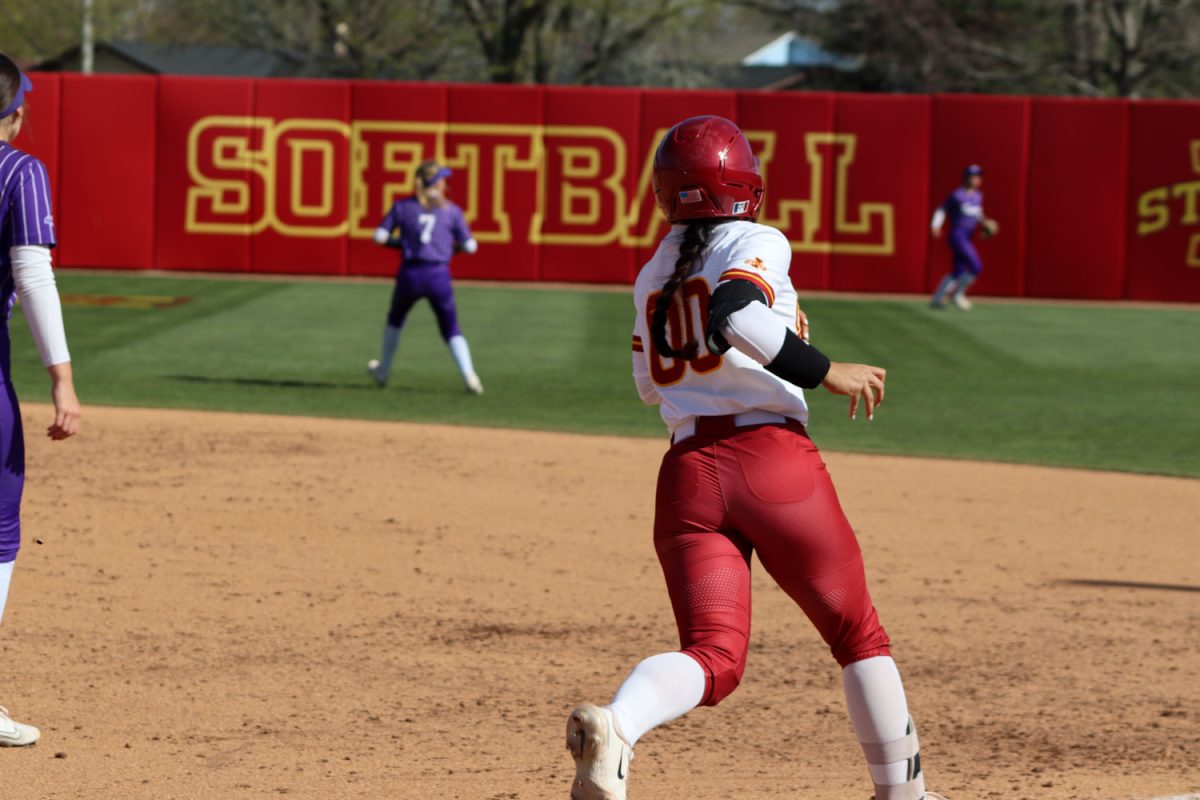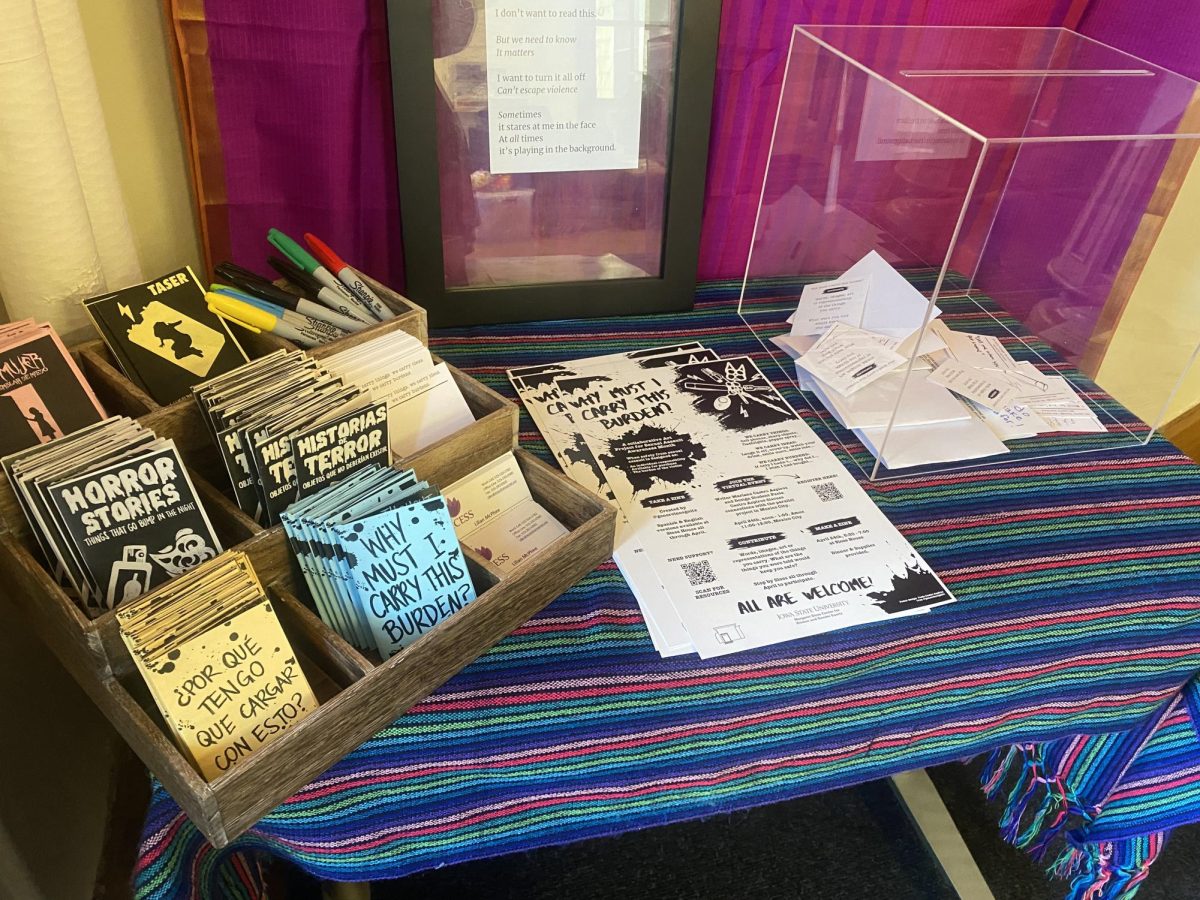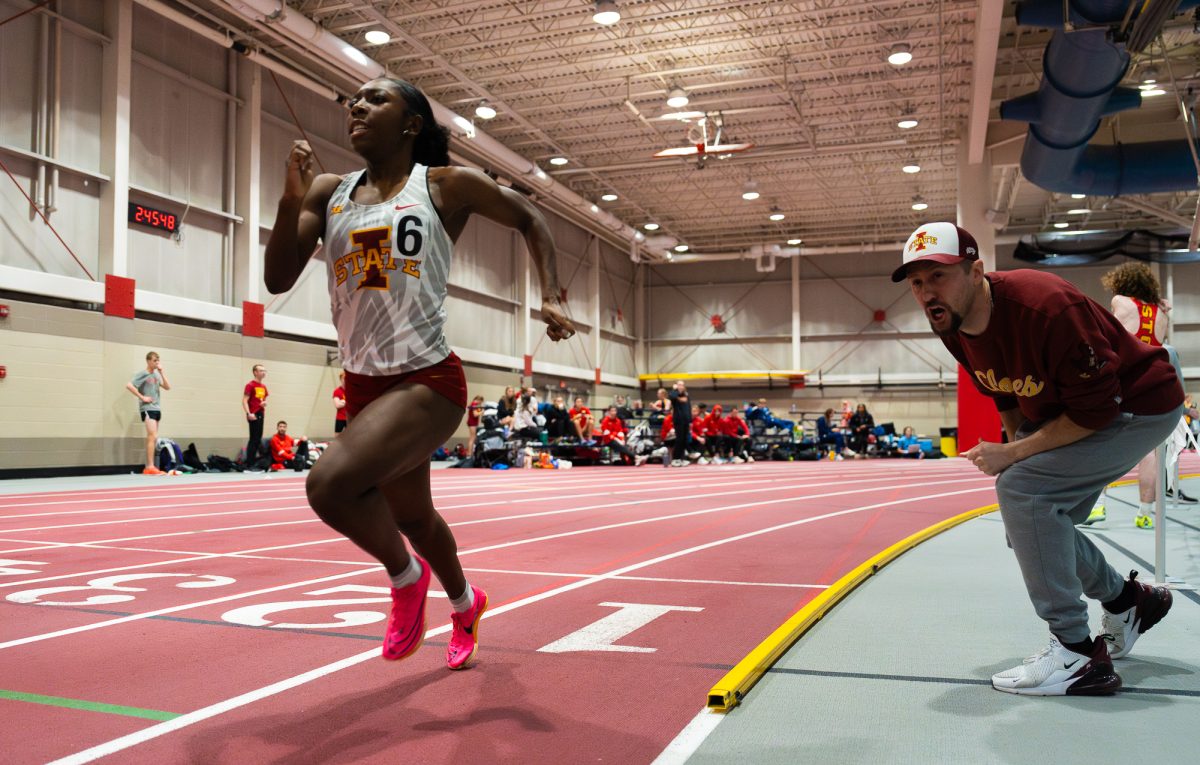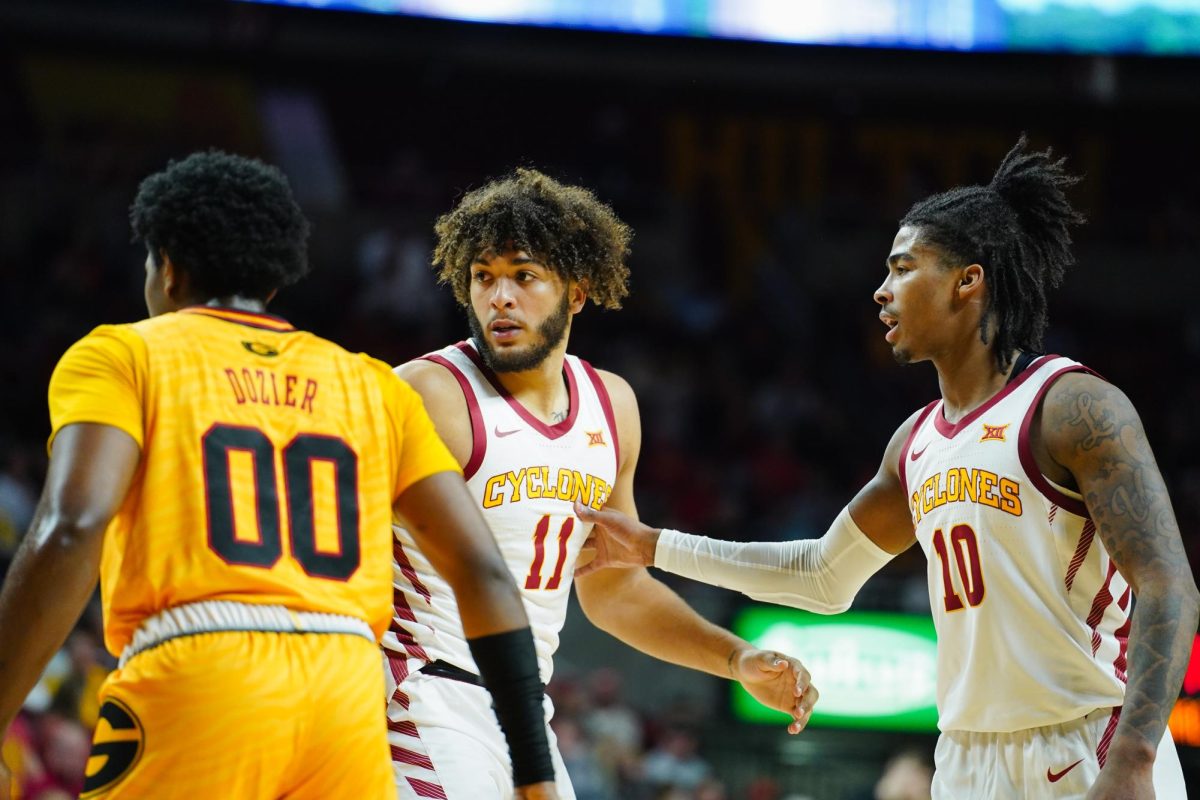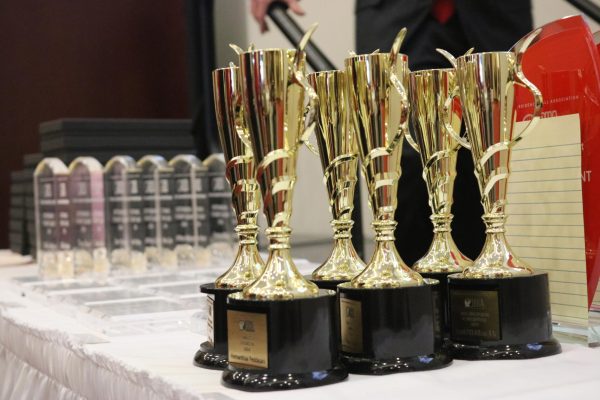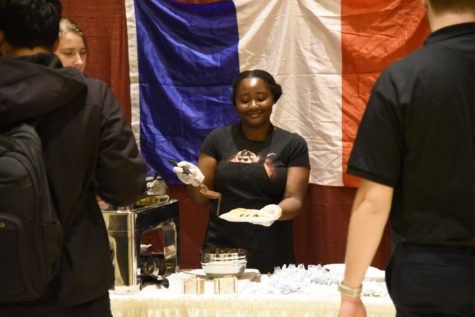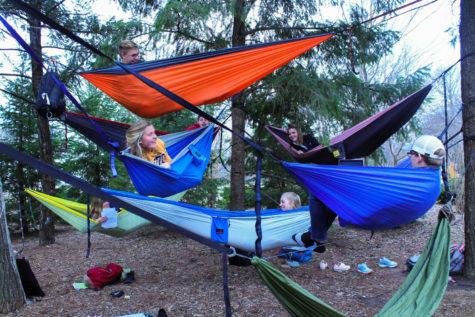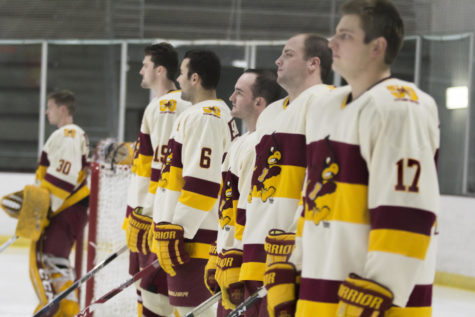Lecture addresses who speaks for Islam
Photo: Blake Lanser/Iowa State D
A member of the Darul Arqum Islamic Center in Ames prays during salat, the Islam pillar of prayer. Muslims pray toward Kaaba, a sacred building in Mecca. Islam is a peaceful religion, contradicting the prejudices formed after the 9/11 terrorist attacks.
February 23, 2016
Terrorism, gender equality and democracy were topics at the forefront Monday night in the Great Hall of the Memorial Union.
The lecture titled “Who Speaks for Islam?” took place at 7 p.m. The lecture featured a screening of the film “Inside Islam: What a Billion Muslims Really Think,” which explored the findings of the world’s first major poll, conducted by Gallup, about Muslim opinions on a variety of topics.
The 2001 Gallup poll on which the documentary focuses was conducted through face-to-face interviews. Questions covered a variety of topics, including questions such as if Muslims thought 9/11 was justified or if Muslim women should be allowed to work any job they are qualified for.
It was also found that 57 percent of U.S. citizens knew little to nothing about Muslims, according to another poll conducted in 2007.
Afterward, a team of panelists gathered to answer questions to discuss the misconceptions and difficulties Muslims face every day.
Panelists included Miriam Amer, executive director of the Council of American-Islamic Relations-Iowa; Arnesa Buljusmic-Kustura, executive director of the Bosniak American Association of Iowa; Sal Syed, Islamic Center of Ames; State Representative Ako Abdul-Samad and James Broucek, assistant professor of religious studies.
“Islamophobia may be used by individuals for personal gain, whether it’s political, to gain fear or to justify going into a country, but the greatest thing it’s being used to do is divide us from each other,” Abdul-Samad said.
Students and attendees were encouraged to ask questions and we’re promised a safe environment to do so.
For some students, the showing of the documentary still left some questions unanswered.
“I think there were some hard questions that they could have asked but didn’t,” said Jason Saporta, graduate student in statistics. “The documentary certainly has some good points. I think it helps clear up some basic misconceptions, but I’m not sure I learned too much from it personally.”
Other students such as Xavier Vallarino, sophomore in supply chain management, felt the documentary contained too many contradictions.
“Ever since I came to the U.S. there has been this feeling that many Muslims believe the same thing. I have never thought that,” Vallarino said. “What does this say about religion itself? Not only Islam, but any religion can be used and interpreted to create this sort of violence.”
For Abdul-Samad, the panelist provided a way to start a much needed conversation.
“When you leave here tonight, we hope that you take a different view, but you put action with those views,” Abdul-Samad said. “Racism, Islamophobia, prejudices stop when you put a stop to it. Don’t let people be negative.”

